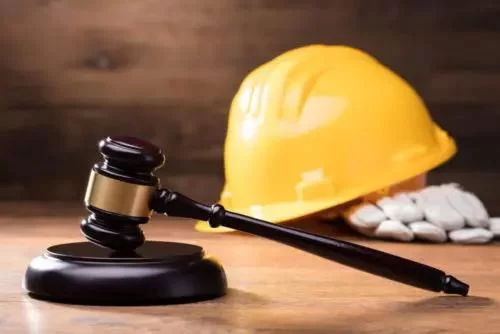
- Understanding-Construction-Disputes
- Common-Causes-of-Construction-Disputes
- Legal-Steps-to-Handle-Construction-Disputes
- Dispute-Resolution-Methods
- Real-Life-Examples-of-Construction-Dispute-Resolution
- Professional-Legal-Support-for-Construction-Disputes
Understanding Construction Disputes
Construction projects are inherently complex, involving multiple parties, detailed contracts, and tight schedules. It is no surprise that disputes arise frequently, causing delays, increased costs, and strained relationships. Knowing how to handle construction disputes legally is crucial for contractors, subcontractors, property owners, and developers to protect their interests and maintain project momentum.
A construction dispute occurs when disagreements emerge over issues such as contract terms, work quality, payment delays, or project scope changes. These disputes can escalate quickly, potentially leading to costly litigation or project abandonment if not managed properly.
Recognizing the nature of construction disputes helps parties approach resolution proactively rather than reactively. By understanding the legal framework and available tools, stakeholders can navigate conflicts with greater confidence and control.
1.1 Complexity and Impact of Construction Disputes
Disputes in construction often involve technical details and specialized knowledge, which makes resolving them challenging without proper legal guidance. Delays can ripple through project schedules, leading to financial penalties or damage to reputations.
Therefore, knowing how to handle construction disputes legally is not just about conflict resolution but also about risk management and safeguarding business viability.
Common Causes of Construction Disputes
Identifying the root causes of disputes is the first step toward effective legal handling. Construction disputes typically stem from a few recurring issues, which parties should be aware of.
2.1 Contract Ambiguities
Unclear or incomplete contract terms often leave room for differing interpretations. For instance, vague descriptions of scope or payment terms can cause disagreements during project execution.
2.2 Delays and Scheduling Conflicts
Delays due to weather, material shortages, or labor issues can disrupt timelines, leading to blame and claims for damages. Without clear contractual provisions, assigning responsibility becomes contentious.
2.3 Quality and Performance Disputes
Disputes often arise over whether work meets specified standards or regulatory requirements. Disagreements over defect repairs or incomplete work are common examples.
2.4 Payment Disputes
Non-payment or late payment triggers many construction conflicts. Disputes may involve withheld funds, disputed change orders, or disagreements about milestone completions.
Legal Steps to Handle Construction Disputes
When disputes arise, following a clear legal process can minimize damage and lead to resolution faster. Here are essential steps to handle construction disputes legally.
3.1 Review the Contract Thoroughly
Start by carefully examining the contract, focusing on clauses related to dispute resolution, scope of work, payment terms, and deadlines. Understanding your legal rights and obligations within the contract forms the foundation of any dispute handling strategy.
3.2 Gather Evidence and Documentation
Accurate records such as contracts, correspondence, change orders, inspection reports, and payment receipts strengthen your position. Detailed documentation can prove critical whether negotiating, mediating, or litigating.
3.3 Attempt Early Negotiation
Direct negotiation between parties can often resolve misunderstandings without escalating costs. Being open to discussion while clearly stating your position may lead to a mutually acceptable solution.
Dispute Resolution Methods
Knowing how to handle construction disputes legally also involves understanding the available resolution pathways, each with its own benefits and drawbacks.
4.1 Mediation
Mediation is a voluntary, confidential process where an impartial mediator helps parties reach a settlement. It is generally quicker and less expensive than court proceedings and preserves business relationships.
4.2 Arbitration
Arbitration involves a neutral arbitrator who reviews evidence and issues a binding decision. It is more formal than mediation but usually faster and more flexible than litigation.
4.3 Litigation
Litigation is the formal court process and is typically considered a last resort due to its cost, time, and adversarial nature. However, it may be necessary when other methods fail or where significant legal principles need to be established.
Real-Life Examples of Construction Dispute Resolution
Consider the case of a commercial developer who faced delays due to contractor disputes over additional work scope. Early mediation facilitated by legal advisors allowed the parties to agree on revised payment terms and a realistic schedule, avoiding costly litigation.
In another scenario, a residential homeowner disputed defective work and withheld final payment. Arbitration led to a clear decision requiring the contractor to complete repairs within a defined timeframe, protecting both parties' interests.
These stories highlight the importance of tailored legal strategies and the role professional advice plays in achieving practical outcomes.
Professional Legal Support for Construction Disputes
Handling construction disputes legally is complex and requires nuanced understanding of contract law, construction standards, and dispute resolution techniques. Engaging experienced legal professionals early can prevent disputes from escalating and help secure the best possible results.
ESPLawyers offers specialized legal services for construction disputes, providing guidance through negotiation, mediation, arbitration, and litigation. Their expertise ensures your construction project remains on solid legal footing.








